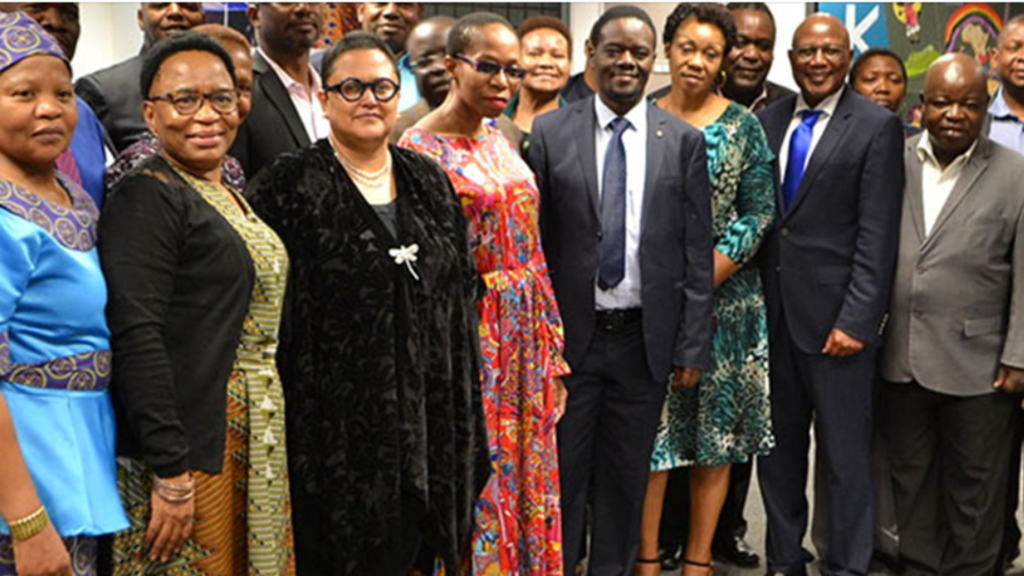Women’s empowerment is a central pillar of the Sustainable Development Goals (SDGs), with specific targets aimed at achieving gender equality and empowering all women and girls by 2030. SDG 5 explicitly focuses on gender equality, but the impact of women’s empowerment transcends this goal, influencing nearly every aspect of sustainable development. From poverty reduction and economic growth to health and education, the advancement of women is key to achieving the broader objectives of the SDGs.
Globally, women make up nearly 40% of the world’s workforce but only hold 24% of senior management positions. In Africa, women contribute significantly to agriculture and small-scale trade, yet they face systemic barriers that limit their economic potential. According to the World Bank, gender inequality in earnings is estimated to cost sub-Saharan Africa $95 billion annually. Moreover, the United Nations estimates that achieving gender equality could add $12 trillion to global GDP by 2025.
However, when women are hindered by violence, lack of education, or limited access to economic opportunities, the ripple effects can stall progress across multiple SDGs. Violence against women remains a pervasive issue, with one in three women globally experiencing physical or sexual violence in their lifetime. In Africa, these challenges are compounded by cultural norms and legal systems that often fail to protect women’s rights, making grassroots efforts all the more crucial.
The Women and Memory Forum (Egypt)
In Egypt, The Women and Memory Forum (WMF) is at the forefront of efforts to empower women by challenging harmful cultural narratives and promoting gender equality. Founded in 1995, WMF works to reshape the representation of women in Egyptian culture and history, providing a foundation for economic and social empowerment. The organization’s initiatives include research, educational programs, and advocacy, all aimed at empowering women to reclaim their roles in society.
WMF’s impact is evident in its efforts to equip women with the skills and knowledge needed for economic independence. Through its workshops and training programs, WMF helps women develop entrepreneurial skills, enabling them to start their own businesses and contribute to their communities. The organization also actively combats violence against women by raising awareness and providing legal support to survivors. WMF’s work is critical in a country where, according to UN Women, 99% of women have experienced some form of harassment, underscoring the need for such targeted interventions.
The Saartjie Baartman Centre for Women and Children (South Africa)
In South Africa, the Saartjie Baartman Centre for Women and Children is making significant strides in supporting women who have experienced domestic violence and other forms of abuse. Established in 1999 in Cape Town, the Centre provides a comprehensive range of services, including safe housing, counseling, legal assistance, and skills development, to help women and their children escape cycles of violence and build independent lives.
The Saartjie Baartman Centre’s economic empowerment programs are designed to provide women with the skills and resources they need to achieve financial independence. This includes vocational training, job placement assistance, and small business development support. The Centre’s impact is evident in the thousands of women and children it has helped over the years, providing them with the tools to rebuild their lives and contribute to their communities.

In addition to its focus on economic empowerment, the Centre plays a crucial role in advocating for the rights of women and children, pushing for stronger legal protections and raising awareness about the issues of gender-based violence in South Africa. The Centre’s work is especially important in a country where gender-based violence is a pervasive issue, with recent statistics from the South African Police Service indicating that over 53,000 sexual offenses were reported in 2020 alone.
Action Points
The efforts of organizations like The Women and Memory Forum and The Saartjie Baartman Centre for Women and Children highlight the vital role that grassroots initiatives play in advancing women’s empowerment in Africa. By focusing on economic empowerment, business support, and the fight against violence, these organizations are not only improving the lives of women but also driving progress toward sustainable development.
However, to truly make a lasting impact, the global philanthropic community must take action. Support these organizations with funding, resources, and partnerships to scale their efforts and reach more women in need. Advocate for policies that protect and empower women in every corner of Africa, and invest in grassroots movements that are best positioned to understand and address the unique challenges in their communities.
As we move closer to 2030, it’s imperative that we amplify these efforts and ensure that no woman is left behind in the quest for sustainable development. Now is the time to act—join the movement and be a catalyst for change.